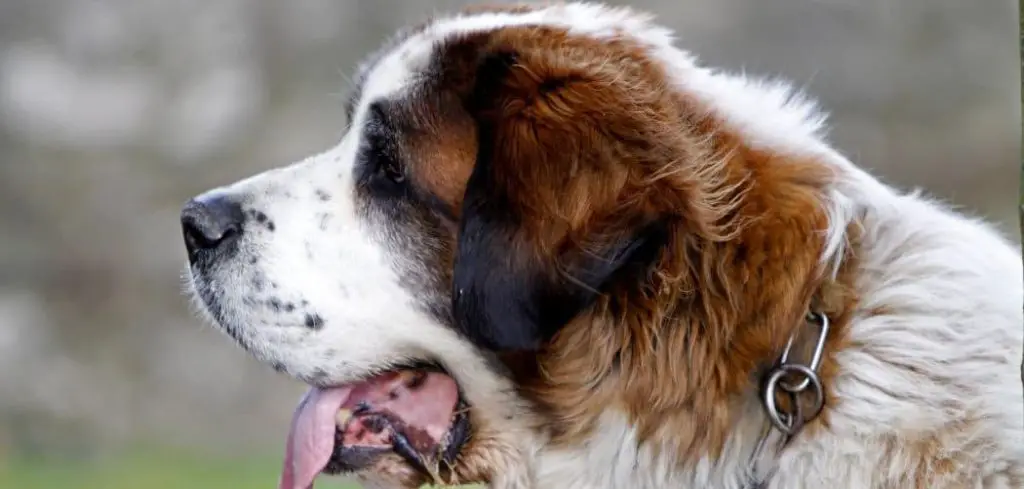Panting after exercise is normal for dogs, but excessive or prolonged panting may signal a deeper issue.
It’s the primary way dogs cool themselves down since they don’t sweat like humans. However, when panting continues long after activity or is accompanied by other symptoms, it might be a warning sign.
We outline the common causes of heavy panting in dogs after exercise, what you can do at home, and when to seek veterinary help.
Dog Panting Heavily After Exercise — Why It Happens
A dog panting heavily after exercise is typically a normal way for them to cool down, as dogs don’t sweat like humans do. Through panting, they release excess body heat and regulate their temperature.
However, if the panting seems excessive, continues long after activity ends, or is accompanied by symptoms like drooling, lethargy, or collapse, it could point to overexertion, heat exhaustion, dehydration, or an underlying heart or respiratory condition.

Common Causes of Dog Panting Heavily After Exercise
Overexertion
Physical activity can lead to temporary panting, especially in young or energetic dogs.
However, if the session is too intense or lasts too long, your dog may struggle to cool down properly.
This is especially true in hot or humid conditions or for dogs that are out of shape.
You may notice your dog lying down, drooling, or seeking shade.
While this can be expected after a long walk or play session, it becomes concerning if they seem distressed or the panting doesn’t ease after a few minutes of rest.
Read more: Dog Panting Excessively (Here’s why)
Heat Exhaustion or Heatstroke
Hot weather is a major risk factor for dogs exercising outdoors.
Panting is a sign your dog is trying to regulate their body temperature, but if it’s excessive, they may be overheating. Flat-faced breeds like Bulldogs and Pugs are particularly vulnerable due to their restricted airways.
Other signs include bright red gums, vomiting, diarrhea, weakness, or collapse. Heatstroke is a medical emergency and can escalate quickly if untreated.
Heart Disease
Underlying heart conditions can be exacerbated by exercise.
Dogs with weakened heart function may struggle to keep up with physical activity, leading to heavy breathing and a rapid heartbeat. These signs might not be obvious during rest but become apparent when the dog is active.
If your dog seems to tire quickly, coughs after activity, or pants excessively even after moderate exercise, it’s time to see a vet.
Brachycephalic Obstructive Airway Syndrome (BOAS)
Dogs with short, flat faces are prone to airway obstruction.
Breeds like Bulldogs, Boxers, Shih Tzus, and Pekingese often have narrowed nostrils and elongated soft palates, making it harder for them to breathe—especially when they’re physically active.
After even minimal exercise, they may pant heavily and appear distressed. Some may also make snorting or gagging noises, especially if the air is warm.
Pain or Injury
If your dog suddenly starts panting heavily after activity, it could be due to injury.
Muscle strains, torn ligaments, or even joint pain from conditions like arthritis can cause discomfort that shows up as panting, limping, or reluctance to move.
Dogs don’t always cry out when hurt—instead, they often signal pain through changes in breathing, posture, or behavior.
Obesity
Excess weight puts added stress on your dog’s heart, lungs, and joints.
Even light exercise can cause dogs carrying extra pounds to pant heavily. Obese dogs may overheat more easily, tire quickly, and have more difficulty breathing efficiently.
If your dog pants heavily after short walks or light play, weight may be a contributing factor.
What to Do If Your Dog Is Panting Heavily After Exercise
Start by getting your dog to a shaded, cool area and offering small amounts of water.
Allow them to rest comfortably and monitor their breathing. Normal panting should slow down within 10–15 minutes post-exercise.
Avoid intense play sessions during hot weather, and consider shorter walks or indoor activities if your dog is a brachycephalic breed or senior.
Use a harness instead of a collar for walks to reduce airway pressure. If your dog pants heavily every time they exercise, consider reducing the intensity or frequency and consult your vet for a tailored activity plan.
If your dog is overweight, talk to your vet about a gradual weight loss program that includes diet and exercise changes.
When to Call or Visit Your Vet
If your dog is panting heavily and the breathing doesn’t return to normal within 15–20 minutes after rest, it’s time to call the vet.
Seek immediate veterinary attention if you notice:
Rapid heart rate that doesn’t settle
Pale or bright red gums
Excessive drooling or foaming
Vomiting or diarrhea after exercise
Lethargy or collapse
Labored or open-mouth breathing
These could indicate heatstroke, cardiac issues, or other serious problems that require prompt intervention.
Read more: Dog Panting Heavily and Shaking Head (Why it happens and what to do)
Key Takeaway
While panting after exercise is normal for dogs, it should ease within a few minutes of rest.
If your dog is panting heavily after light exertion, appears distressed, or shows other warning signs like vomiting or fatigue, it could point to a more serious issue.
Monitoring your dog’s breathing patterns and knowing their normal limits can help you catch problems early. When in doubt, contact your veterinarian for guidance tailored to your dog’s health and lifestyle.
